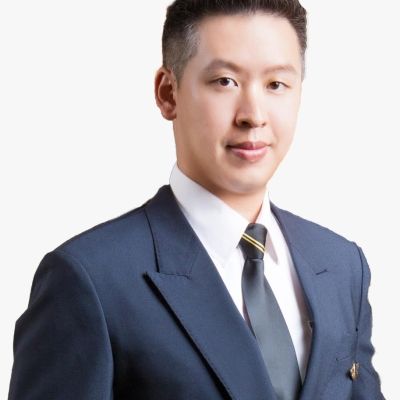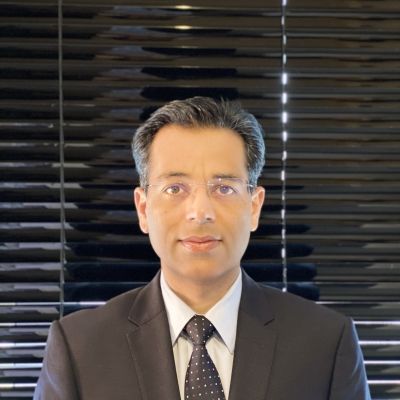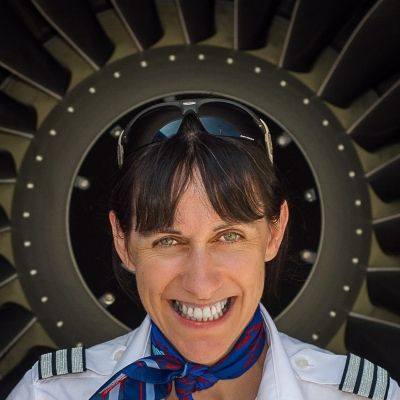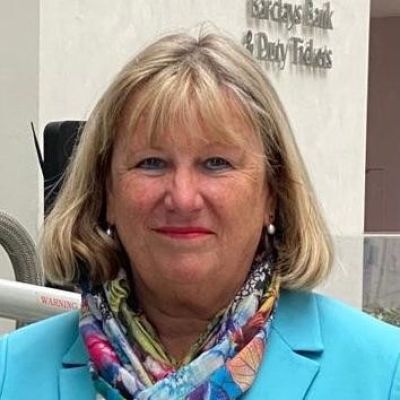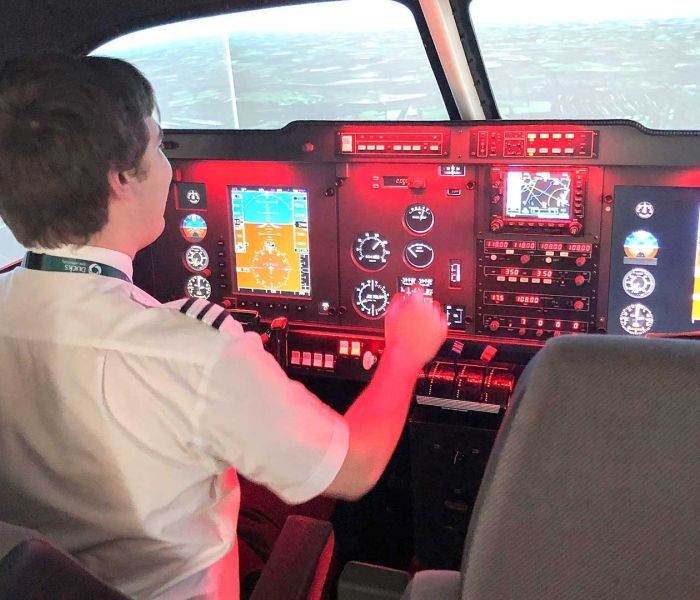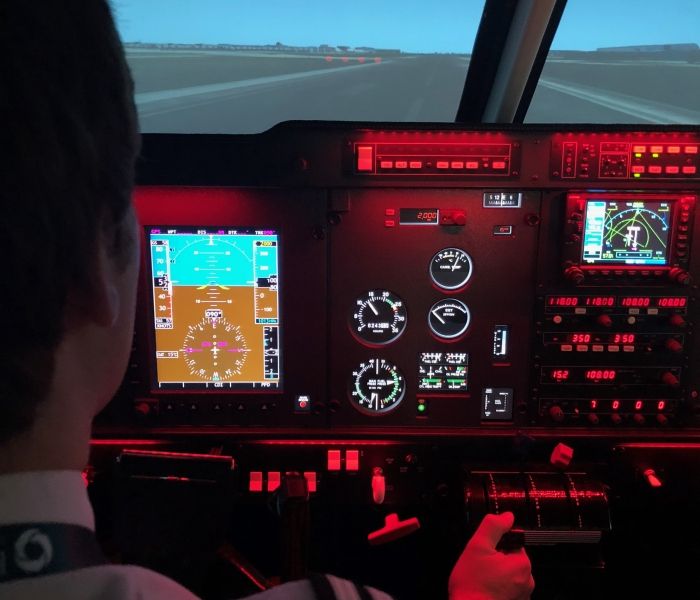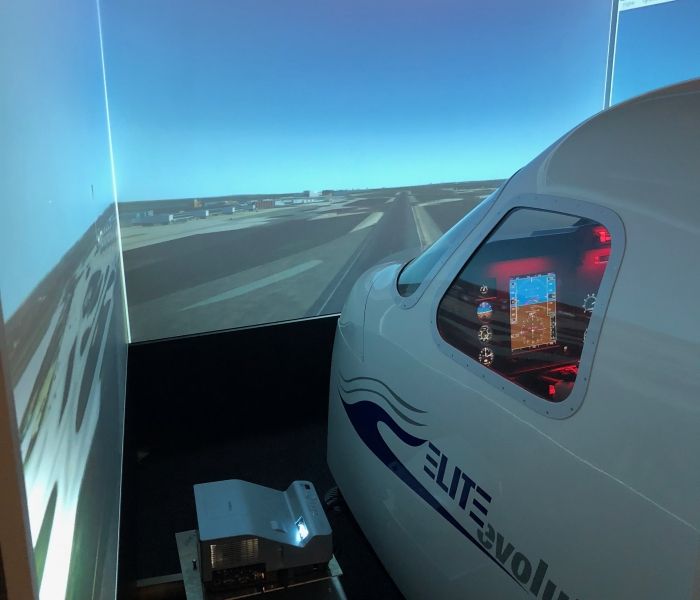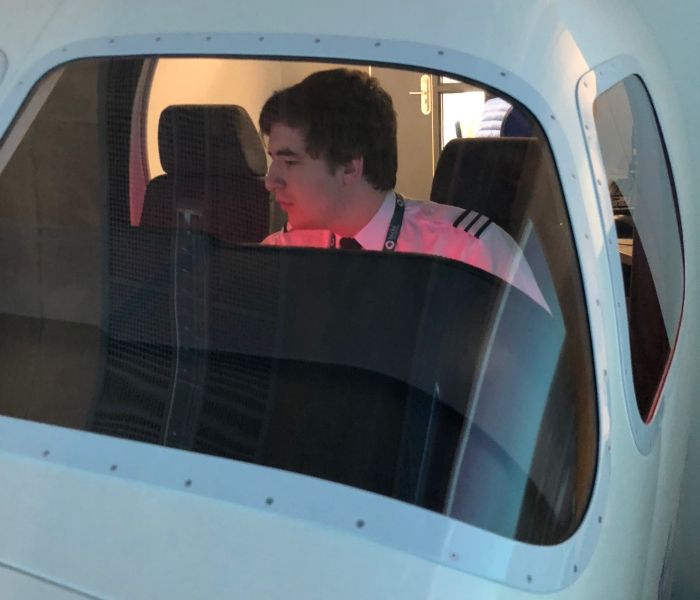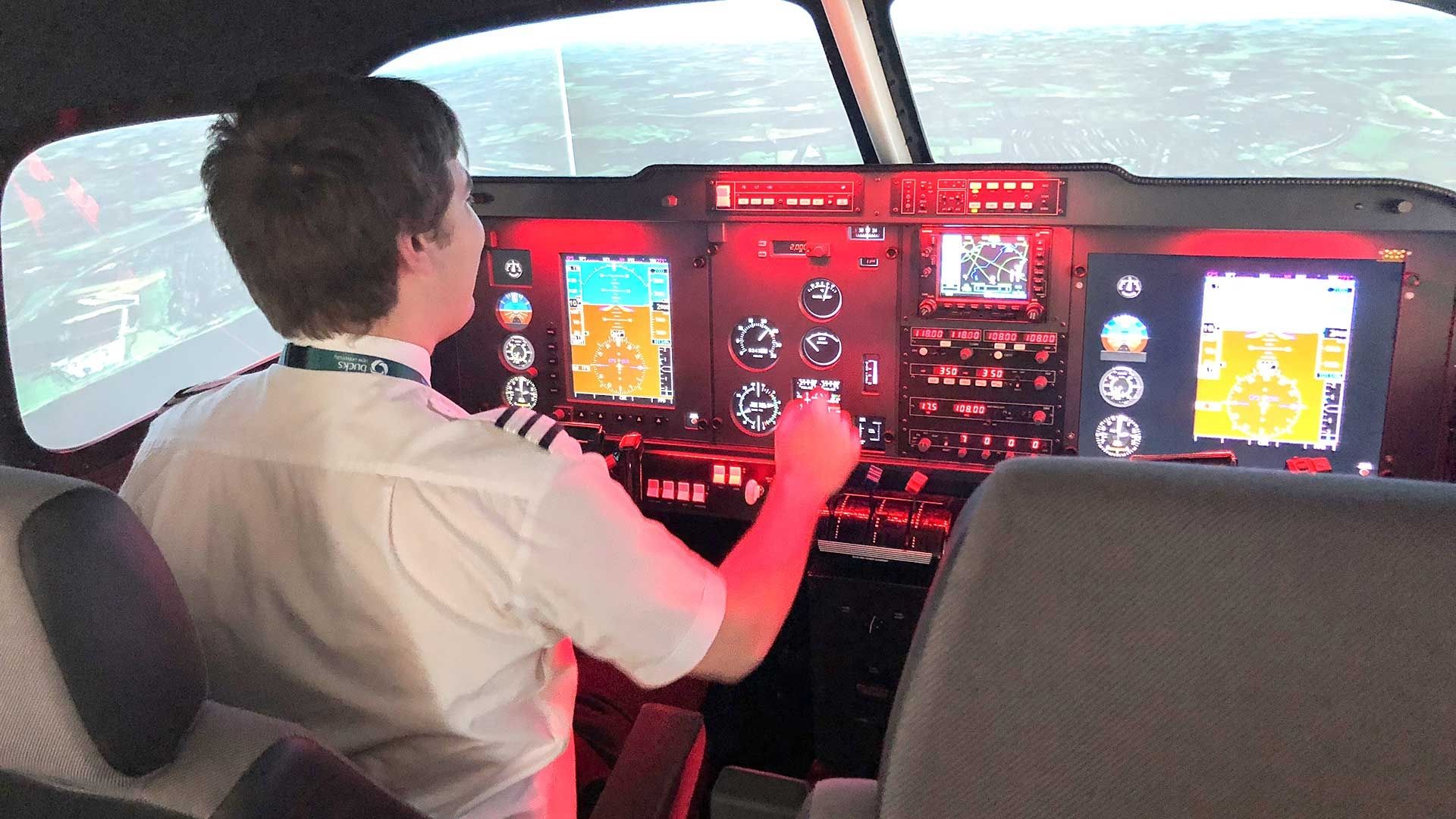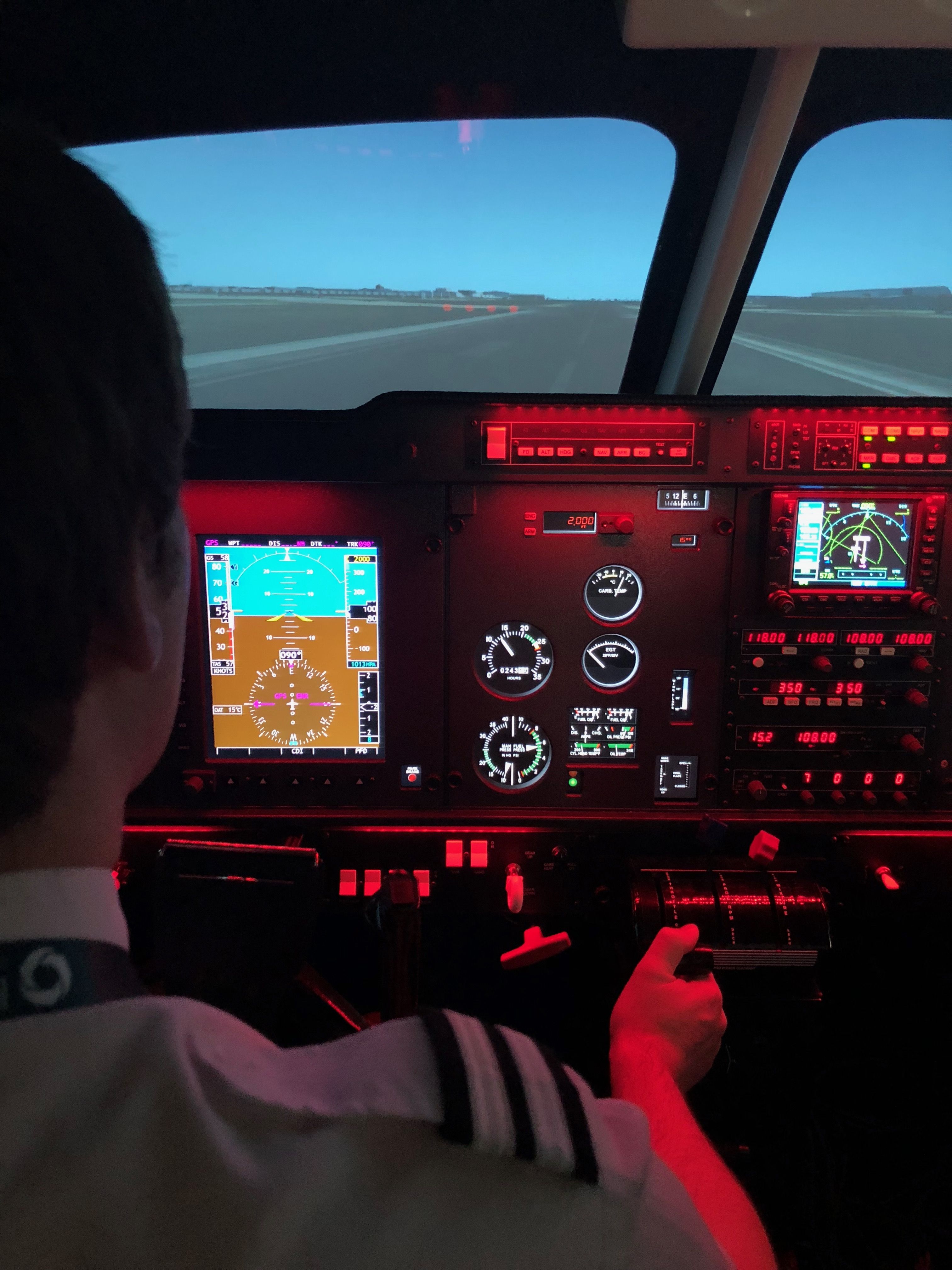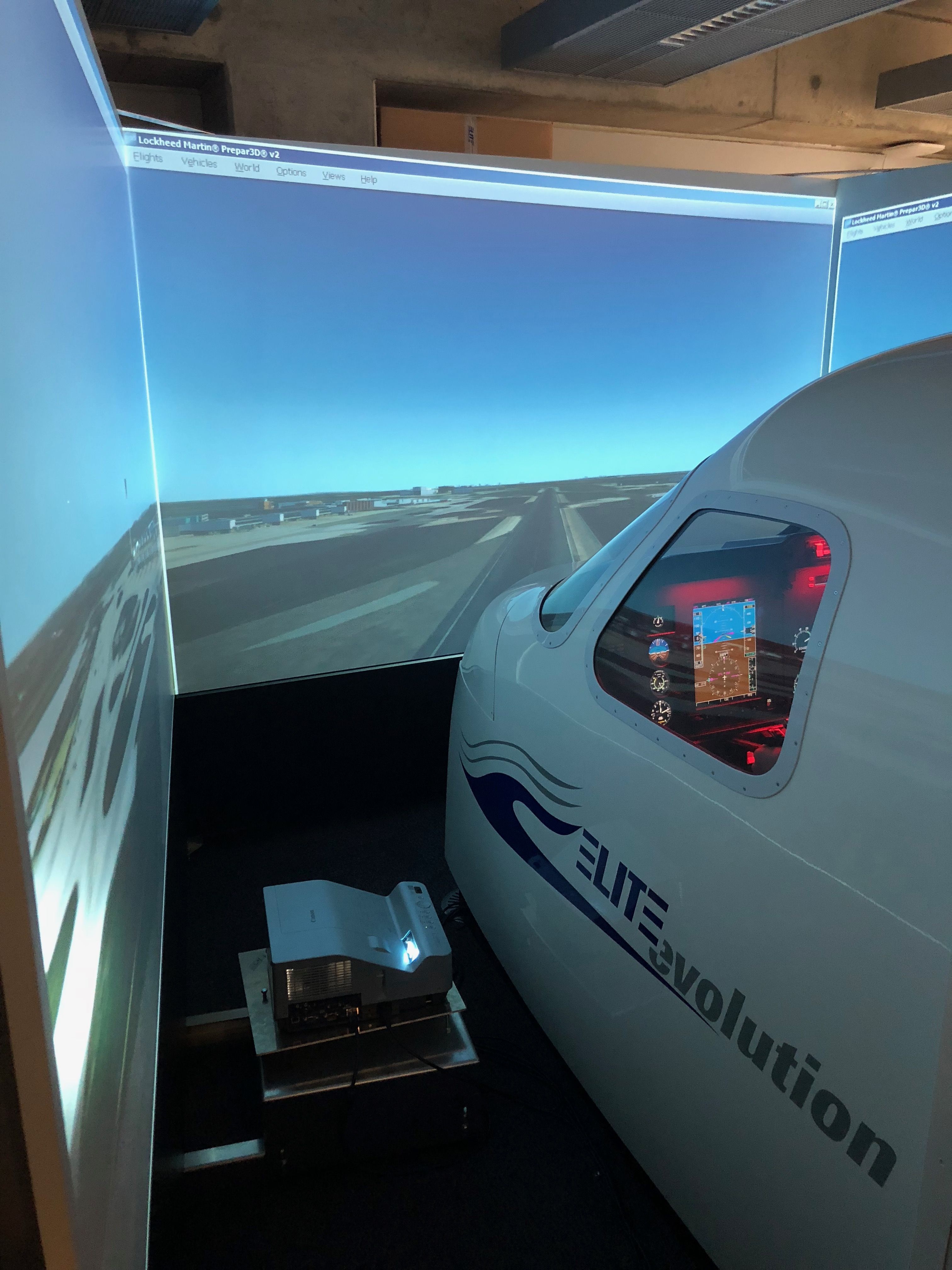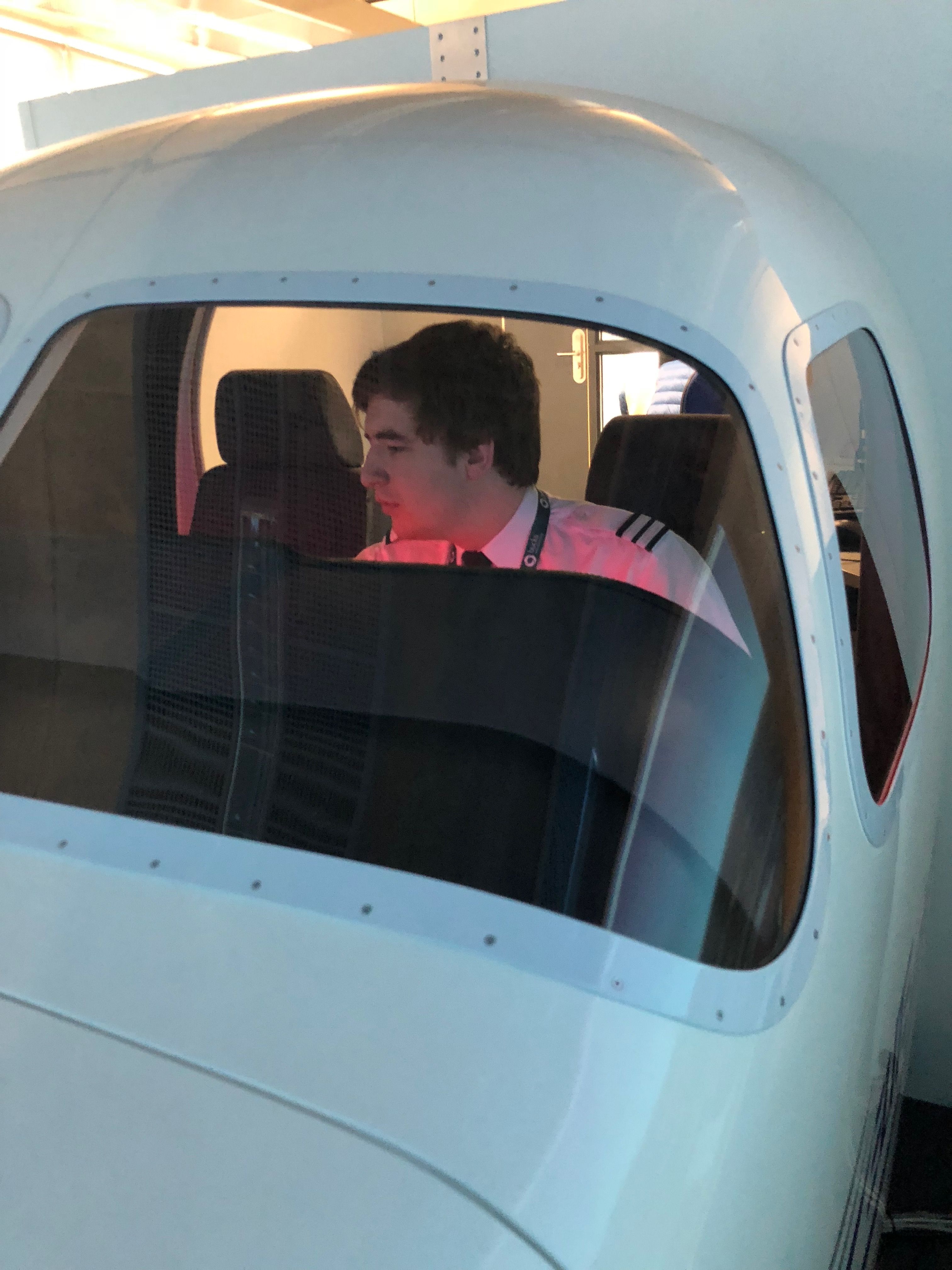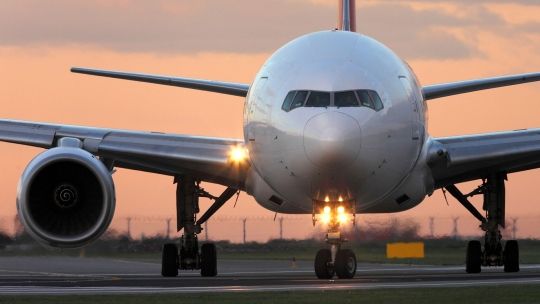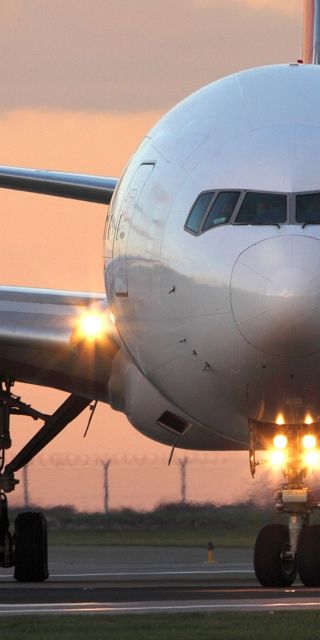
BSc (Hons) Aviation Management with Private Pilot Training in Aeroplanes
- Study Mode: Full Time
- Location: High Wycombe
- Duration: Three Years
- Start Date: September 2024
With over 20 years’ experience we can help prepare you for your future career in aviation. Complete the requirements for a full honours degree alongside the practical flight training to attain a Private Pilot’s License (PPL). With exclusive access to out FNPT II Flight Simulator, combined with our training partners and professional connections, you’ll get the chance to immerse yourself in the industry.
Why study this subject?
The aviation industry keeps the world moving and a career in this sector promises unique opportunities.
With the aviation industry everchanging, this programme is continuously adapted to meet these ongoing changes so you can be sure you’re receiving up-to-date knowledge.
Our aviation management with private pilot training degree has been designed to equip you with wider aviation knowledge in addition to pilot skills. This helps to open up an array of future career opportunities, allowing you pursue a career in not just aviation but also in business, leisure, or the emergency services.
BNU has been running its aviation courses for over 20 years now, so they definitely have strong connections within the industry and know exactly how to tailor the course to suit what aviation organisations are looking for in their employees.Fareeha Ahmed
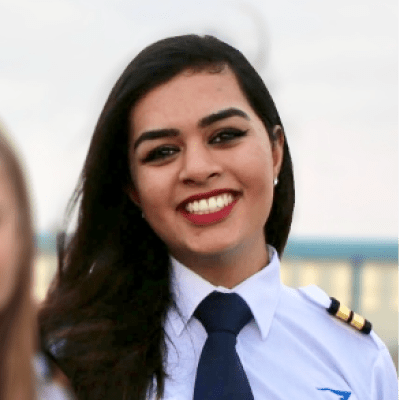
Why study at Buckinghamshire New University?
Our close proximity to Heathrow Airport and other major UK airports – along with their suppliers – means you’re perfectly placed for networking, seasonal jobs, and work placements that are available.
At BNU, we recognise roles in this field are hands-on – so you’ll take part in simulated learning experiences throughout the course using our specialised facilities, including our FNPT II Flight Simulator. This helps to refine your skills and keep your reactions sharp once you’ve completed the required training.
You will learn from skilled lecturers within the School of Aviation and Security who have a high level of working knowledge, based on industry experience. Their teaching will allow you to gain genuine insight into the latest trends and requirements of air transport.
As well as receiving top-class lectures and seminars, guest speakers often deliver sessions to enrich your learning – previously we have welcomed speakers TUI, British Airways, Ryanair and Gatwick Airport
If you're interested in the military world, UK students will be eligible to apply for a place in our regional University Air Squadron (part of the Royal Air Force), offering unique access to military flying and adventurous training.
As part of your studies, you’ll enjoy free membership of the Royal Aeronautical Society, the UK professional association dedicated to the aerospace and aviation industry. As a member, you will be able to participate in a number of exciting industry events, including conferences, guest talks, student competitions, and networking opportunities. In addition, you can also benefit from free Air League memberships that enable you to apply for flying, gliding and engineering scholarships reducing the amount of your PPL costs.
Opportunity modules are a key part of the BNU curriculum. You’ll choose modules from a broad selection in areas such as sustainability, entrepreneurship, creativity, digital skills, personal growth, civic engagement, health & wellbeing and employment. Opportunity modules are designed to enable you to develop outside the traditional boundaries of your discipline and help you to further stand out from the crowd to future employers.
As a BNU student, you will automatically become a member of Bucks Students’ Union giving you access to a wide range of services that we offer for free. You’ll also be able to join the Aviation Society where you’ll have the ability to attend a variety events and experiences. Some examples of what we’ve done in the past include tours of NATS, a Boeing Flight Simulator experience at CAE and a tour at easyJet.
Our top 5 tips before applying
Before you make an application, we recommend you consider the following:
- There are additional costs involved with this course, in addition to the University’s tuition fees. The University does not offer any loans as we are not a financial institution. Students often get funding from private bank loans as well as student finance to pay for the tuition fees. Seek professional financial help to understand what it means for you.
- Talk to, and visit, the flight schools you are considering for most up-to-date pricing. We have included approximate costs for guidance on our approved training organisation factsheet.
- Make sure you understand the differences between a UK CAA Licence and an EASA Licence; your chosen flight school will be able to offer some guidance on this. You can find the contact details for our approved training organisations on our factsheet.
- Understand the UK CAA/EASA Class 1 (Commercial Pilots) or Class 2 (Private Pilots) medical requirements, and check that you can successfully hold such licenses, before committing to the flight training.
- Come along to an open day, talk to our current students and staff, and get all your questions answered.
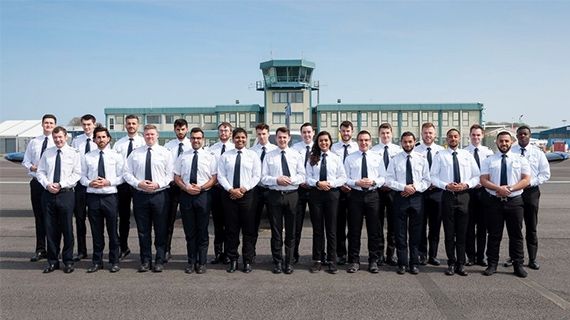
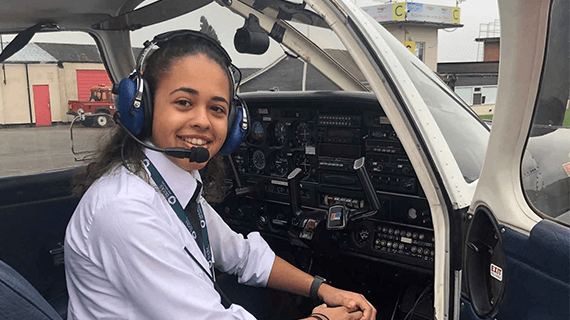
What facilities can I use?
We’ve invested in a range of state-of-the-art facilities across our campuses to support your learning. We’re one of the very few UK universities to have an FNPT II Flight Simulator and as a student pilot you’ll have exclusive access and will be able to gain vital experience, without having to even leave the ground.
Alongside this, our other specialised simulation facilities allow you to experience real-life airport scenarios, developing your abilities in airfield planning and operations, and crisis and emergency management.
On top of services that BNU provides, we are also members of or partner with a range of external organisations to bolster your industry knowledge:
- We have access to the Cirium (FlightGlobal) software package which will greatly assist you in your learning and in the completion of several assessments.
- We are classed as an Educational Establishment with Airports Council International Europe through our membership, giving students free access to the latest aviation news and developments.
- We’re part of the London Heathrow Skills Partnership – this means what you study is influenced by the UK’s largest airport and you’ll be one of the first to hear about opportunities. It also helps us give you an up-to-date picture of what is going on in the industry throughout your studies.
How will I be taught and assessed?
You will be taught by experienced commercial pilots and will also benefit from the team’s connections and valuable networking opportunities. Industry-leading professionals often deliver talks and presentations, providing valuable insight into the profession.
We take a multi-faceted approach to learning and teaching on this course, and you’ll benefit from:
- lectures
- seminars
- workshops
- work-based learning
- employer or organisation-based case studies
- guest speakers
- live or 'real world' projects
- guided learning
- simulations
- practicals
- discussion groups
- virtual forums.
Every aspect of this course provides the opportunity to learn. We use a range of assessment methods throughout the duration of the course. This is a key feature of the programme as it enables early feedback to be given on your progress.
Throughout your three years on this course, you will carry out the following assessment activities:
- coursework
- presentations
- learning journals
- simulation
- examinations
- dissertation
- projects.
September – January
In the first semester, you will begin your Private Pilot Licence (PPL) training. This will consist of a minimum of 45 hours flight training, alongside studying for the PPL ground exams.
Ground exam common subjects include:
- 010 Air Law - Aeroplane and Helicopter
- 040 Human Performance - Aeroplane and Helicopter
- 050 Meteorology - Aeroplane and Helicopter
- 060 Navigation - Aeroplane and Helicopter
- 090 Communications - Aeroplane and Helicopter
- 020 Aircraft General Knowledge - Aeroplane or Helicopter
- 030 Flight Performance and Planning - Aeroplane or Helicopter
- 070 Operational Procedures - Aeroplane or Helicopter
- 081 Principles of Flight - Aeroplane only
- 082 Principles of Flight - Helicopter only
These exams are taken through the CAA e-exam system. You will need to purchase a set of AFE PPL theory books or similar to support your studies (we use AFE PPL for our theory).
You will need several additional personal items, which may include kneeboard, headset, facemask and some schools require uniform to be worn.
February – June
During this semester, you will be moving forward more quickly with your flight training and some students may begin their PPL flying. The PPL is just the beginning and, once you have completed this licence, we encourage you to consider further ratings.
June – September
During the summer you can accelerate your training by completing the hours required to undertake further ratings – you may wish to complete your Night Rating, Multi-Engine Rating and/or IR(R) during this time. Some of our students will complete hours abroad, in destinations such as California, Florida, France, Cyprus and Poland.
September – March/June
You will begin this year with an ATPL theory course, which typically last between six and nine months. They can be taken full-time at a flight school, or by distance learning with on-site top-up. You will have a personal tutor who will monitor your progress and work with you to deal with any issues at your flight school.
Information on where you can sit the exams are provided on the CAA website.
There are 13 exams, which are:
- 010 Air Law
- 021 Aircraft General Knowledge – Airframe and Systems, Electrics, Power Plant and Emergency Equipment
- 022 Instrumentation
- 031 Mass & Balance
- 032 Performance – Aeroplanes
- 033 Flight Planning and Monitoring
- 034 Performance (Helicopter)
- 040 Human Performance and Limitations
- 050 Meteorology
- 061 General Navigation
- 062 Radio Navigation
- 070 Operational Procedures
- 081 Principles of Flight – Aeroplanes
- 082 Principles of Flight (Helicopter)
- 090 Communications
It is an intensive course, with a lot of material that will be new to you. It builds on the PPL theory and introduces many new topics. We recommend to all of our students that you ringfence this time as you will become completely absorbed with studying.
Some of our students do continue flying during this period and we recommend building your hours at weekends – it can be a fun way to relax after the stresses of the ATPL ground school week!
ATPL courses are usually split into 3 modules, with exams at the end of each module. Resits can be taken as needed.
We recommend planning for additional flying straight after you complete your ATPL theory course. You will be able to complete further hours, as well as multi-engine rating, IR or CPL (depending on where you are at with your training). We don’t expect you to complete all of these in one summer!
You can see the approved training organisations we work with here, however if you have another school you prefer, please talk to the Course Leader about this. Please note, schools may change from time to time.
Please note that you cannot commence your ATPL theory course until your PPL is complete.
In this year, students will choose which flight school to complete their hours and/or additional ratings. You will have a personal tutor lecturer who will monitor your progress and work with you to deal with any issues at your flight school and give guidance on getting your licence.
All modules and flight training must be successfully passed before your degree may be issued.
This course will give me an advantage in securing a position as a commercial pilot. In a constantly changing industry, awareness of the industry is key and the course gives us that knowledge.Edgar Woodhead
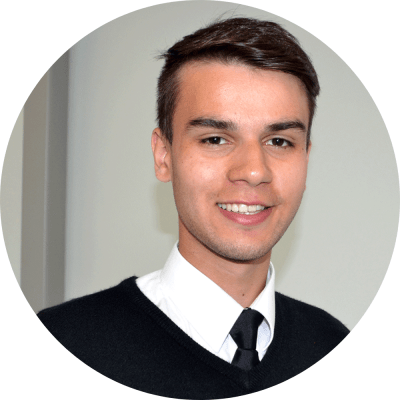
What are the course entry requirements?
A typical offer will require a UCAS tariff score of: 104 - 128
UCAS points can be obtained through qualifications such as A levels, T levels, BTEC or an Access to Higher Education course in a relevant subject. Please list all your qualifications on the application form as you will be asked to provide copies when we receive your application.
You also need at least two A-levels and GCSE Maths and English at grade C/4. Additionally, some knowledge of science subjects would be an advantage. Mature students with non-standard qualifications will be considered on an individual basis.
All students will require at a minimum a Class II Medical in order to undertake their PPL solo, those students wishing to undertake Commercial training will need to gain a Class I Medical prior to enrolling with their selected Approved Training Organisation (ATO). Further information on the requirements of Class I and II Medicals, including approved AME's, can be found on the CAA website.
For further details of our international English entry requirements, please visit our international pages.
Modules
This provides a guide of the modules that make up your course. You can find more information about how your course is structured on our Academic Advice section.
This course has Opportunity modules.
Opportunity modules are a key part of the BNU curriculum. You’ll choose modules in both your first and second year from a broad selection in areas such as sustainability, entrepreneurship, creativity, digital skills, personal growth, civic engagement, health & wellbeing and employment. Opportunity modules are designed to enable you to develop outside the traditional boundaries of your discipline and help you to further stand out from the crowd to future employers. Find out more.
You must choose 2 x 10 credit Level 4 Opportunity modules from the Opportunity module catalogue.
What are the tuition fees
UK students receiving student loan via Student Finance, Academic Year 2024-2025
- Year 1: £9,250
- Year 2: £9,250 (bursary of £7,250) - Placement Fee of £2,000
- Year 3: £9,250
International, Academic Year 2024-2025
- Year 1: £15,150
- Year 2: £15,150
- Year 3: £2,000 (Placement Year)
Tuition fees breakdown
What are the additional costs?
The Private Pilot Licence is taken in the first year of the degree, in addition to other academic modules.
The PPL Theory element of the training is taken as an academic module, and is included within the degree fees, but the flying element plus equipment, CAA fees, etc. are extra.
In addition to the tuition fees, there are additional costs to consider for this programme. We have provided approximate costs to give you some guidance on this, but recommend you check with your chosen flight school for the most up-to-date information on pricing and other related matters.
We recommend to budget for a total cost of around £15,000-£17,000 additional fees in Year 1 for this. The fee will vary depending on school chosen, and you will see cheaper prices advertised, but this is a realistic figure, and includes things like:
- Medical
- extra hours (few students complete in 45 hours)
- landing fees
- headset
- books
- equipment
- flight test aircraft hire
- CAA flight test
- RT
- ground exam fees.
Please check with your chosen flight school for the most up-to-date information on pricing and other related matters.
International Students
As an International student you will study this degree in a slightly different order — whilst Year 1 is the same, Years 2 and 3 are swapped.
What are my career prospects?
Throughout your time with us we’ll support you on the route to your chosen career. We’ll help you to develop crucial skills, encouraging you to become enterprising and skilled leaders and support you in your search to find employment after graduation.
On successful completion of this programme, you’ll be the proud owner of a PPL and be able to act as pilot in command in non-commercial operations. You’ll also be qualified for a variety of jobs in the travel and tourism industry, particularly those in civil aviation.
If you’re interested in undertaking further study or specialising in a certain field, you can choose to study one of our renowned postgraduate programmes, such as MSc Aviation Operations and Management and MSc Managing Organisational Resilience.
My degree not only enabled me to learn to fly, but to also gain an insight into so many factions and interactions within the aviation industry, that I put into practice every time I go flying.Darren Palmer Airbus A350 Senior First Officer for Cathay Pacific Airways
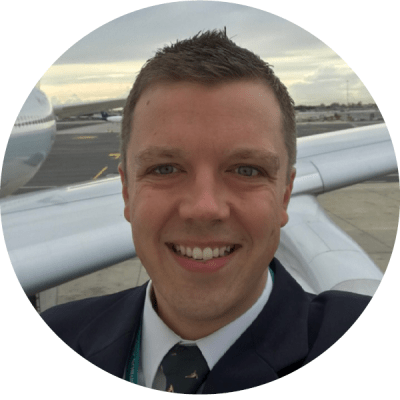
Course leader
